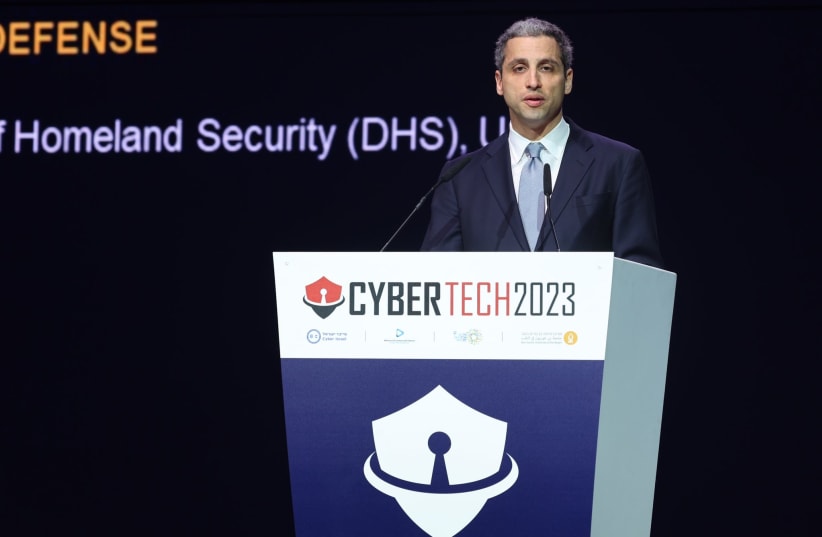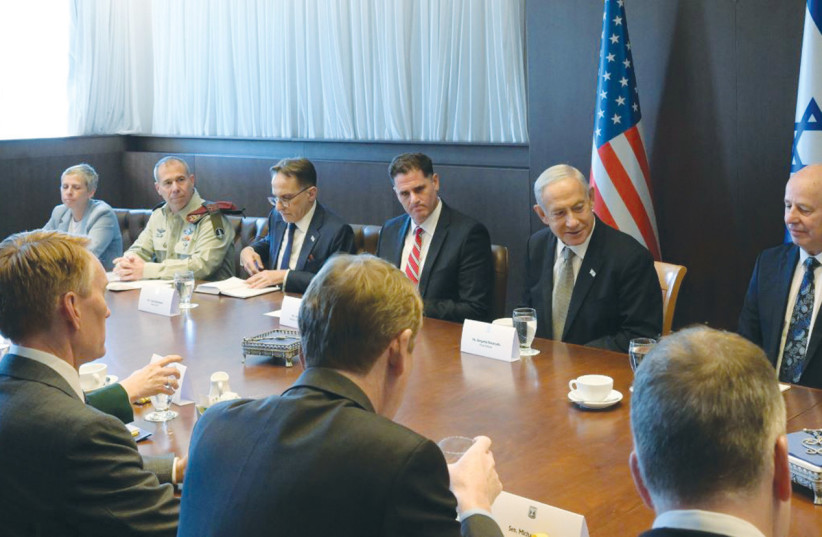Extending Abraham Accords engagement into cyberspace is a major step “toward a broader security architecture in the Middle East,” US Department of Homeland Security Under Secretary for Policy Robert Silvers has told The Jerusalem Post in an exclusive interview.
Speaking to the Post before the first-ever public appearance of the cyber chiefs of five Abraham Accords countries at the Cybertech conference in Tel Aviv on Tuesday, Silvers talked about his hopes for expanding digital ties between the countries going forward.
Silvers appeared on a panel at the conference alongside Israeli cyber chief Gabi Portnoy and his Emirati, Bahraini and Moroccan counterparts. The panel, he said, “will reflect on the shared threat environment we face.”
“The Abraham Accords are a launching point for normalized relations throughout the Middle East,” he said. “DHS [The Department of Homeland Security] is putting the Abraham Accords into action to improve our collective cyber resilience.”
The top US cyber official said that to date, the accords “have mainly been focused on economic and diplomatic ties,” whereas enhancing cyber security ties has not been fully explored.
He said that Washington is using the Abraham Accords as a platform for “transforming partnerships with both foreign partners and industry to protect” the data of both the US and its allied partners.
Questioned about threats, he replied that Iran had used cyber weapons to attack the US and many Abraham Accords countries and that sharing that experience and solutions could help safeguard all of the countries going forward.
Further, he emphasized that ransomware had become an outsized threat for both private companies and nation-states.
While Silvers did not want to give Iran or other attackers any ideas, when asked about more specifics regarding the threat, he did reference cyberattacks on the energy, health and banking industries, as well as other major infrastructure sectors that have been hit repeatedly in recent years.
Israel, the UAE, Bahrain and Morocco previously appeared together at a cyber conference in Bahrain in December. Also in attendance were high-ranking cyber officials from Oman and Kuwait, two countries that are always on the shortlist of potential new ones that may join the accords soon.
While Silvers did not want to reveal anything radical, he and other US officials have made it clear that they hope to expand the accords and that sharing advanced cyber tools with other countries that might be on the fence could be helpful as another motivating factor.
Next, Silvers was pressed to explain the latest developments in cyber relations, given that Israel and the UAE have had very tight cyber cooperation since the accords were signed in late 2020, something which the Post confirmed with then-Israel National Cyber Directorate Chief Yigal Unna.
While Silvers did not want to reveal any classified details, he referenced the US-led global ransomware initiative which includes dozens of countries and which has a sub-group led by Israel and the Emirates.
In other words, it appeared that Bahrain and Morocco could still up their games to be closer to Israel and the UAE’s high levels of cyber expertise. Further, even Jerusalem and Abu Dhabi could continue to benefit from such international cooperation.
Silvers also echoed similar condemnations by other US officials of Russian cyberattacks on Ukraine, stating that Washington would continue to assist Kyiv in fending off Moscow’s hacking efforts on a variety of fronts.

